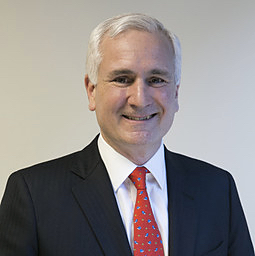 New York based Tonix Pharmaceuticals announced it will halt the development of its TNX-102 SL drug candidate for the treatment of fibromyalgia after it failed to achieve target endpoints in the AFFIRM Phase 3 clinical study. The 12-week randomized, double-blind, placebo-controlled trial had 519 participants enrolled at 35 centers in the U.S. Earlier trial results appeared promising.
New York based Tonix Pharmaceuticals announced it will halt the development of its TNX-102 SL drug candidate for the treatment of fibromyalgia after it failed to achieve target endpoints in the AFFIRM Phase 3 clinical study. The 12-week randomized, double-blind, placebo-controlled trial had 519 participants enrolled at 35 centers in the U.S. Earlier trial results appeared promising.
TNX-102 SL – Tonmya for Fibromyalgia Background
In June, the U.S. Food and Drug Administration (FDA) conditionally accepted the proposed trade name Tonmya for TNX-102 SL as a candidate for managing fibromyalgia. The company said a request for proprietary name review for Tonmya would be submitted once a fibromyalgia New Drug Application (NDA) was approved by the FDA.
TNX-102 SL is a sublingual (under the tongue) formulation of cyclobenzaprine HCL 2.8 mg intended to be taken daily at bedtime. Because non-restorative sleep a characteristic fibromyalgia symptom that contributes to the development of widespread pain and other symptoms, the therapy is designed to increase restful sleep.
The drug acts on multiple neurotransmitter systems intrinsic to sleep physiology, with potent blocking activity at the serotonin 2A receptor, the alpha-1 adrenergic receptor, and the histamine-1 receptor. It is designed to deliver cyclobenzaprine to the bloodstream rapidly and to bypass first-pass hepatic metabolism. Cyclobenzaprine, sold under the brand names Flexeril, Amrix, and Fexmid, is a muscle relaxant with a history of relieving skeletal muscle spasms and associated pain. Cyclobenzaprine is one of most widely prescribed medications in the U.S.
Phase 2b BESTFIT Clinical Trial Results
In the BESTFIT (Bedtime Sublingual TNX-102 SL as Fibromyalgia Intervention Therapy) study, a randomized, double-blind, placebo-controlled trial of TNX-102 SL in 205 participants at 17 U.S. sites, the participants were instructed to take either the medicine or a placebo for 12 weeks.
BESTFIT results demonstrated improved fibromyalgia symptoms and other negative impacts of the condition. Statistically significant improvements were also observed in several Revised Fibromyalgia Impact Questionnaire (FIQR) items that include pain, sleep quality, anxiety, stiffness, and sensitivity.
According to a responder analysis of patients who achieved at least a 30% pain reduction from baseline to week 12, treatment with TNX-102 SL led to a 34.0% response rate compared to a 20.6% response rate of patients who received a placebo.
The most common adverse events observed in the study were oral numbness, abnormal taste, sleepiness, dry mouth, and back pain. No serious adverse events were reported
 However, Tonix reported that the drug did not achieve the primary efficacy endpoint in the AFFIRM Phase 3 trial, which required a statistically significant proportion of patients reporting a 30 percent or greater reduction in pain from baseline to the end of the 12-week treatment period based on the pre-specified primary analysis.
However, Tonix reported that the drug did not achieve the primary efficacy endpoint in the AFFIRM Phase 3 trial, which required a statistically significant proportion of patients reporting a 30 percent or greater reduction in pain from baseline to the end of the 12-week treatment period based on the pre-specified primary analysis.
When TNX-102 SL activity in fibromyalgia was cross-validated by two additional endpoints, Patient Global Impression of Change (PGIC) and the FIQ-R assessing global FMS symptom and function improvement, the drug showed strong improved sleep quality effects by both the daily diary and the PROMIS sleep disturbance scale.
 “TNX-102 SL showed broad beneficial effects across key fibromyalgia symptoms and was well-tolerated in the AFFIRM study,” said Tonix president and chief executive officer Dr. Seth Lederman in a press release, “Despite achieving clinically meaningful results from AFFIRM, we have greater clarity on the regulatory path forward in our PTSD (post traumatic stress disorder) program. We will therefore discontinue the fibromyalgia program in order to fully focus Tonix’s resources on advancing our potential breakthrough PTSD program to Phase 3.”
“TNX-102 SL showed broad beneficial effects across key fibromyalgia symptoms and was well-tolerated in the AFFIRM study,” said Tonix president and chief executive officer Dr. Seth Lederman in a press release, “Despite achieving clinically meaningful results from AFFIRM, we have greater clarity on the regulatory path forward in our PTSD (post traumatic stress disorder) program. We will therefore discontinue the fibromyalgia program in order to fully focus Tonix’s resources on advancing our potential breakthrough PTSD program to Phase 3.”
PTSD is a chronic and debilitating condition that affects approximately 8.5 million Americans. It is characterized by chronic disability, inadequate treatment options, high utilization of healthcare services, and significant economic burden. PTSD patients usually experience nightmares and disturbed sleep. The condition is also associated with depression and suicide.

